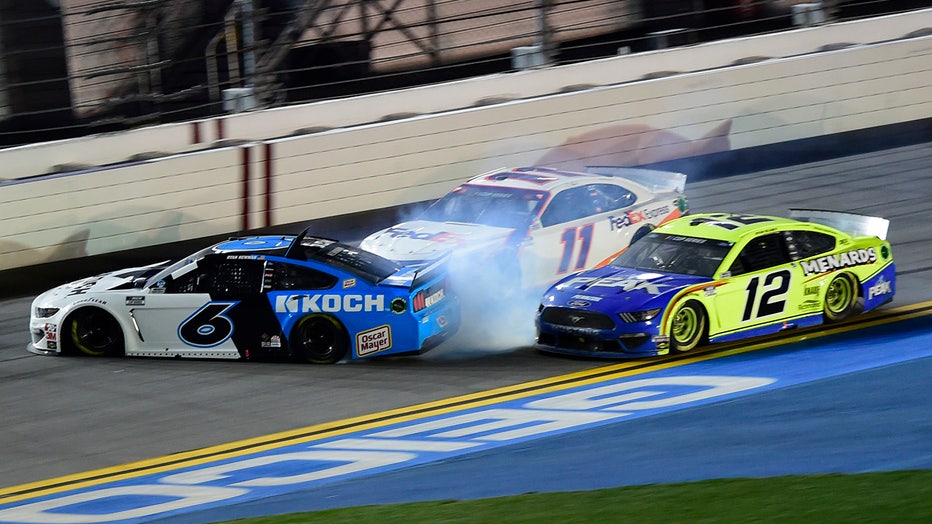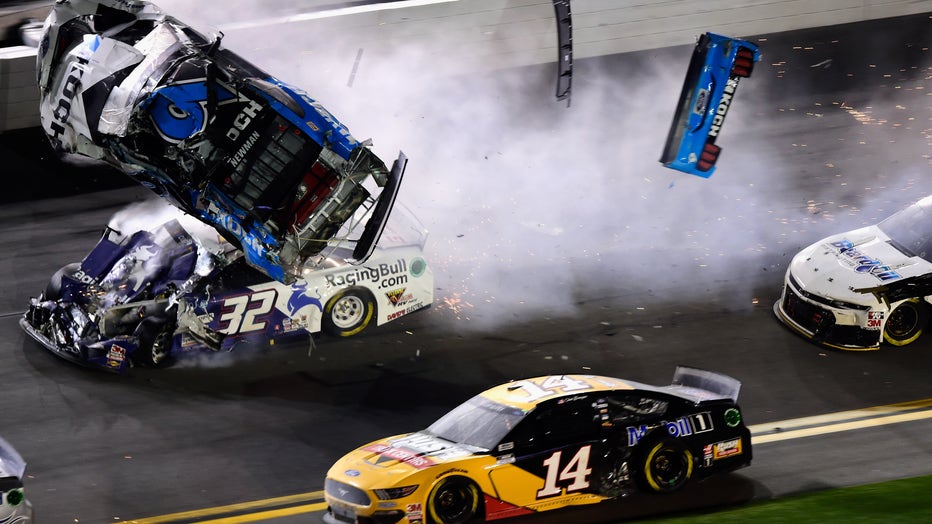What caused Ryan Newman's crash?
DAYTONA BEACH, Fla. - Drafting, blocking and bumping are essential elements of racing on NASCAR's fastest tracks. When Ryan Blaney pushed fellow Ford driver Ryan Newman in the final lap of the Daytona 500, it was something both men have done hundreds of times on superspeedways.
For a few seconds, it looked like everything was going to work out Monday night, with a career-defining Daytona 500 victory for Hamlin. Then Newman's car angled back into traffic, creating the most violent and frightening wreck at Daytona since the death of Dale Earnhardt in 2001.
What happened? Where did it go wrong? Could it have been prevented?

Denny Hamlin, driver of the #11 FedEx Express Toyota, wins over Ryan Blaney, driver of the #12 Menards/Peak Ford, as Ryan Newman, driver of the #6 Koch Industries Ford, crashes and flips behind them during the NASCAR Cup Series 62nd Annual Daytona 50
There are no simple answers. Here’s what we know:
Race-winner Denny Hamlin gave Blaney a huge shove that pushed him toward leader Newman and caused Blaney's car to wobble. Blaney regrouped and seemingly had enough momentum to drive by Newman when he swerved low. Newman tried to block the move and got hit by Blaney.
“We pushed Newman there to the lead and then we got a push from (Hamlin). ... I was committed to just pushing (Newman) to the win and having a Ford win it and got the bumpers hooked up wrong,” Blaney said.
RELATED: Hamlin and Newman contrast risk and reward at Daytona 500
Bump drafting at 200 mph is a delicate maneuver, and a few inches can turn victory into chaos.
Blaney hit Newman's bumper to the right of center, causing Newman’s car to turn right, barely missing Hamlin, and slamming into the energy-absorbing barrier. The impact caused Newman's car to flip onto its roof and then its side. Corey LaJoie then crushed the driver’s side of Newman’s car, sending it airborne again.
Newman’s car again landed on its roof and skidded past the finish line to a stop, spewing sparks and fuel that caused a fire. It took safety crews about 16 minutes to extricate Newman from his No. 6 Ford and load him into a waiting ambulance. He remained hospitalized Tuesday afternoon.

Ryan Newman's #6 Koch Industries Ford, and Corey LaJoie, driver of the #32 RagingBull.com Ford, crash during the last lap of the NASCAR Cup Series 62nd Annual Daytona 500 at Daytona International Speedway Feb. 17, 2020 (Photo by Jared C. Tilton / Getty Images)
The aerodynamics package NASCAR uses at Daytona and Talladega, the two fastest and biggest tracks in the series, creates tight packs of cars running close to 200 mph. Drivers work together and draft off each other, essentially pushing the car in front of them, to maintain momentum and avoid losing positions.
A car running alone in the pack without a drafting partner is often shuffled back in the field. Drivers who can lock bumpers and stay connected surge toward the front. The downside to this racing is that one wiggle can create a harrowing accident, and pack racing usually leads to massive wrecks that collect multiple competitors who have no way of avoiding melees.


